The Sega Genesis, released in 1988, was a serious contender to the Super Nintendo Entertainment System. At the time, the two consoles were rivals up until the release of their successors in 1994 (Saturn) and 1996 (N64). The best Sega Genesis games are now playable on almost every modern device thanks to emulation.
Whether you use RetroArch, BlastEm, or BizHawk, you can enjoy all the Genesis titles. Given the large library of games, here are the twenty most interesting Sega Genesis games:
Sonic the Hedgehog

Release: 1991
Developer: Sonic Team
Publisher: Sega
Arguably the best-selling Sega Genesis game, Sonic the Hedgehog was created to rival Nintendo’s Super Mario which did very well on the NES and SNES. Sega felt they needed their own mascot. The idea was successful, and Sonic became a famous mascot and franchise.
The first game in the series is a platformer like so many are. Sonic has to stop Dr. Robotnik and to do that, he has to pass through various levels, collecting rings and Chaos Emeralds along the way. The rings are his health bar and having a single ring is enough to stop Sonic from losing a life. This is one of the best Sega Genesis games.
Sonic the Hedgehog 2

Release: 1992
Developer: Sega Technical Institute
Publisher: Sega
Not one year later, Sonic the Hedgehog 2 was released. It is the second-best-selling Genesis game, improving upon the first one. The game has double the unique level themes, and 11 levels, with 10 levels having two acts. Sonic is not alone this time and has a unique companion.
Joining Sonic for the first time in the franchise is Miles Tails Prower, an uncannily smart fox that can fly and swim. Tails is always around and a second player can join in and take control of him. The first and second Sonic games were so popular that they were adapted to many consoles including the Sony PSP.
Disney’s Aladdin

Release: 1993
Developer: Virgin Games USA
Publisher: Sega (for the Genesis version)
This was a strange title that came out of nowhere after the success of the eponymous animated movie. It was first released for Genesis and then ported to other platforms. You play as Aladdin and run through the story of the movie, with multiple levels.
The sword in melee and apples as a ranged attack are the basic mechanics. You can collect gems to trade them for lives or the ability to continue from the same level if you lose all your lives. There is a bonus level if you find a golden Apu in the level. You play as Apu in the bonus levels.
Sonic 3 & Knuckles

Release: 1994
Developer: Sonic Team
Publisher: Sega
Sonic 3 & Knuckles is actually a merger of two different games, Sonic the Hedgehog 3 and Sonic and Knuckles. Once you play the merged game, the story makes even more sense. It was one story, told in two separate games, now merged into one game.
You can play as Sonic solo, Tails and Sonic together, solo Tails, or Knuckles. Sonic and Tails have similar levels, though Tails can fly and swim. Knuckles has different levels because he can break rocks that Sonic and Tails would otherwise have to climb.
You have bonus levels, and as always, you have to collect rings to stay healthy and prevent losing a life. Each level has two acts and at the end of the second act, you battle Robotnik most of the time, as a boss.
Note that the first and second sonic games should also be played, for the gameplay, but also for the music and story. They are classics for a reason, though the third game improves on many aspects.
The success of Sonic as a character and mascot propelled Sega even after they discontinued hardware manufacturing following the release of the Sega Dreamcast. Sonic titles made it to non-Sega consoles after 2001.
Mortal Kombat

Release: 1992/1993
Developer: Midway
Publisher: Midway
What we know today as the Mortal Kombat franchise, started in 1992 with the first eponymous title. Ed Boon and John Tobias wanted to create a fighting game that would rival and be as successful as Street Fighter. The game initially had four people working on it.
Mortal Kombat used real actors as models and then 2D digitized sprites based on the actors were implemented in the game. The game introduced finishing moves, and fatalities, which were so gory that the ESRB had to be created, though with no small thanks to Doom and Night Trap.
Mortal Kombat II

Release: 1993/1994
Developer: Midway/Probe Entertainment
Publisher: Midway/Acclaim Entertainment
Following the success of the first Mortal Kombat, the second game in the series expands on the first, adding more characters, moves, and finishers. The game still uses live actors and their images, turned into sprites. From 7 to 12 playable characters, the roster improved.
What also improved were the moves, with more nuances between the high and low attacks. More fatalities per character were added, including babalities and friendship, which are entertaining ways of finishing a fight. It was a commercial success and one of the best Sega Genesis games.
Street Fighter II: Special Champion Edition

Release: 1992/1993
Developer: Capcom
Publisher: Capcom
Street Fighter II is a known quantity and one of the most loved fighting games in the history of the genre. It is what drew people to fighting games in general. Released as Special Champion Edition on the Genesis, it sold very well all over the world.
It introduced Hyper Fighting as a mode, apart from the standard modes. The Champion Edition also allowed you to play as the Shadaloo characters, Vega, Bison, Sagat, and Balrog. Even though the game was a bestseller, quite a bit of sales went to its new competitor Mortal Kombat.
Altered Beast

Release: 1988
Developer: Sega
Publisher: Sega
Compared to the other titles, Altered Beast is an old title. It is still a great side-scrolling beat ’em up game. You are dead and are resurrected to rescue the mage’s daughter (of course you are). As you defeat the white cerberi, you gain points which increase your muscle size.
With three upgrades, you turn into a beast. This beast upgrade differs from level to level, allowing you to move faster, jump higher and deal more damage, as well as ranged damage. Each level has a boss which is easier to beat in beast form.
Ultimate Mortal Kombat 3

Release: 1995
Developer: Midway Games
Publisher: Midway
Mortal Kombat blew the world with its gory first title. Ultimate Mortal Kombat 3 added some characters that were missing from Mortal Kombat 3. Scorpion and Kitana were omitted, which is a strange choice given their overall popularity and importance to the MK universe.
The game is a fighting masterpiece, often cited as one of the best Mortal Kombat titles. It was released on all the popular consoles at the time, including an arcade cabinet version, and was a popular game on all the platforms. It was released even on the Nintendo GBA.
Contra – Hard Corps

Release: 1994
Developer: Konami
Publisher: Konami
This is another classic title from the Contra series. This is set in the distant future where robots are normal and in this case, have been hacked and are attacking the city. You must deal with the hacker with four playable characters.
It is a run-and-gun game, but it has dividing levels at some points, which tell a different story and could affect the ending. It is a fast and unforgiving game. You lose a life if you get hit by a single bullet or if you touch a single enemy. Make sure to have your dodges and pattern recognition primed, otherwise, this will be a long game.
Teenage Mutant Ninja Turtles: The Hyperstone Heist

Release: 1992
Developer: Konami
Publisher: Konami
The Hyperstone Heist sees the return of everyone’s favorite turtles from the Turtles in Time game. As always, Shredder is up to no good, and with the Hyperstone, he could eventually conquer reality.
Choose your favorite turtle and enjoy a faster game. There are fewer levels than in the previous game, but they aren’t as short. Enjoy classic characters, from allies to bosses that you will recognize from the shows and other Turtle games.
Castlevania: Bloodlines

Release: 1994
Developer: Konami
Publisher: Konami
Castlevania: Bloodlines is also known as The New Generation in Europe or Vampire Killer in Japan. It is a platformer that features two main characters, John and Eric. They use different weapons and as such, have varying gameplay. One can swing with the whip and the other uses a spear for a higher jump.
Castlevania games are popular even nowadays, and they were very popular in the 1990s. They are still in development, though the gameplay might not be what you could see in Bloodlines. The Genesis title is still worth playing if you want to familiarize yourself with the lore of the series before playing the newest titles.
Gunstar Heroes

Release: 1993
Developer: Treasure
Publisher: Sega
This is a fast-paced run-and-gun title that features you going after evildoers as Red or Blue. You can later add more characters, as you save them from evil. The weapons change and you can play in two styles, shooting while running or shooting while standing still.
Levels have frequent bosses that have strange names and their attacks are named in advance, which gives the players a heads-up. Like most games of its era, the music is what sets it apart, with iconic tunes on each level.
Jurassic Park

Release: 1993
Developer: BlueSky Software
Publisher: Sega
A side-scrolling action game, Jurassic Park was released for many consoles, as well as the arcade. The Genesis version sold very well, thanks to both the novel and the movie, all doing wonders for the game. The gameplay quirks also helped attract new players.
When playing as Dr. Alan Grant, you can use various weapons and tools to reach the end of each level, Grant having seven levels. You can also play as a velociraptor and have a completely different experience, though for only five levels.
Ms. Pac-Man

Release: 1982/1993
Developer: General Computer Corporation and Midway/Tengen
Publisher: Midway
The original Ms. Pac-Man was released in 1982 for the arcade and various Atari consoles. It was the first Pac-Man game not to be developed by Namco. It features Pac-Man’s wife, Ms. Pac-Man, as she goes through various levels with the goal of eating all the pellets.
There are changes, notably to the ghosts. They behave in different ways, which makes planning for level clears much harder, with random behavior for Blinky and Pinky. It was a successful port, even though it was released 11 years later, and is still one of the best Sega Genesis games.
Sonic Spinball

Release: 1993
Developer: Sega Technical Institute
Publisher: Sega
Following the popularity of Sonic the Hedgehog 2, Sonic Spinball was developed and released, as an interesting game that was a different Sonic experience. It is a pinball game with four changing levels, the goal being to find Chaos Emeralds and beat the bosses.
Sonic is chasing Dr. Robotnik in the story, who imprisoned wildlife and turned them into robots (surprise, surprise). When Sonic infiltrates the prison/volcano, he engages the Pinball Defense System, which he must then navigate if Robotnik is to be stopped.
X-Men 2: Clone Wars

Release: 1995
Developer: Headgames
Publisher: Sega
The X-Men franchise has seen some amazing games over the decades, this being one of them. This is a platform game with action elements. The game has 7 playable characters, which is a lot for a platformer game, though advancements were made by 1995.
The story follows the Phalanx’s return and the virus’ attempt to spread all over the planet. Cyclops, Beast, Wolverine, Nightcrawler, Psylocke, and Gambit are sent to stop the Phalanx. It is a great game and one of the best Sega Genesis games in general.
Mighty Morphin Power Rangers

Release: 1994
Developer: Nova
Publisher: Sega
Notably, this game, based on the same TV show, is actually five different games, all different because of the different consoles they were released on. With that in mind, the games had their own developers, Nova being the one that did the Genesis version of the game.
This is a fighting game, where you battle 1v1 against a computer or fellow player. The scenario mode puts you against a regular-sized opponent, and then a monster version of it. In the latter scenario, you fight in the Megazord. Regular attacks and special moves are available.
Golden Axe II

Release: 1991
Developer: Sega
Publisher: Sega
The Golden Axe series is known for its various side-scrolling beat ‘em up hits. The second game in the series improved on the first in gameplay elements, though whether it is one of the best Sega Genesis games is often up for debate, fans being fans, after all.
Tyris Flare, Ax Handler, and Gilius Thunderhead are the playable characters, each unique in their own way. The goal of the game, at least in story mode, is to recover the Golden Axe from Dark Guld. That pesky axe always gets misplaced.
Streets of Rage 3

Release: 1994
Developer: Sega Ancient
Publisher: Sega
Streets of Rage 3 is the continuation of the Streets of Rage series, with characters such as Blaze, Axel, Skate, and the new Dr. Zan. As you play the game, if you meet certain requirements, you can unlock more characters.
Each character has its own moves, providing you with the opportunity for unique gameplay. It is a beat ‘em up classic that allows you to express your street-fighting, button-mashing skills. The previous two titles are also worth playing and if you get the chance, you should go through them as well.
Streets of Rage

Release: 1991
Developer: Sega
Publisher: Sega
The start of a great franchise, Streets of Rage was released in 1991 for the Sega Genesis. This is a classic beat ’em up game, where enemies approach you from both sides of the map. It was one of the most sold Genesis games, and its ports did well, too.
Three playable characters are available, Axel, Adam, or Blaze. Each of them have their own stats and different moves. Combinations of moves and weapons provide the player with a deadly arsenal. With a great soundtrack, Streets of Rage is one of the best Sega Genesis games.
Comix Zone

Release: 1995
Developer: Sega Technical Institute
Publisher: Sega
Sketch Turner is a musician and artist, struggling to find his way in New York City. As he is working on his comic, a bolt of lightning strikes him and the comic (surprise, surprise) and he is thrown into the world of the comic.
Mortus, a mutant from the comic, puts Sketch through the comic in an attempt to end his life and gain power in the real world. Sketch has to beat his own creation as you guide him through this beat ‘em up through the pages of a comic book.
Earthworm Jim

Release: 1994
Developer: Shiny Entertainment
Publisher: Playmates NA, Virgin Interactive EU, Takara JP
Earthworm Jim is a popular name in the world of platformer games. Jim is an earthworm that inhabits a rather strong body. You can shoot or use Jim’s body as a whip to beat enemies, Indiana Jones style. Likewise, you can swing using Jim’s body, which is a core element of gameplay.
At the time, this game featured lovely graphics and was considered a masterpiece. To this day it remains a popular title, not just as one of the best Sega Genesis games, but in general.
The Lion King

Release: 1994
Developer: Westwood Studios
Publisher: Virgin Interactive Entertainment
The list of the best Genesis games cannot be complete without Lion King, another title that had great success following the eponymous Disney animated movie. You play as Simba and traverse the varying landscape, eating bugs and beating hyenas, to find your way to adulthood.
Eventually, you have to face Scar and claim your place as the king of animals. The bonus levels with Timon and Pumba are a great addition to an already interesting game.
This title was developed by the famous Westwood Studios, the developers of the Command & Conquer franchise, as well as Dune and Dune II, which revolutionized real-time strategy games, forging a path for modern RTS titles.
Golden Axe III

Release: 1993
Developer: Sega
Publisher: Sega
Golden Axe III is the third game in the Golden Axe series but is often overlooked. It has great music, multiple characters with special moves, and a classic story. The Prince of Darkness is wreaking havoc and you must stop him.
As one or two of the heroes, you are released from the curse and will eventually free the other heroes as you fight through the levels. The game features choices and you can visit different levels and have multiple varying playthroughs.
Shinobi III: Return of the Ninja Master

Release: 1993
Developer: Sega
Publisher: Sega
From a cartoony title to Shinobi, the ninja master, who has to beat Neo Zeed and his crime syndicate once more, Shinobi is a known title in the Genesis universe. Unlike its predecessors, Shinobi III has fast gameplay and more moves. It is not as stiff as the previous titles, making it one of the best Sega Genesis games in the ninja beat ‘em up universe.
The plot is simple and revolves around an evil crime lord and a ninja who can sense his rise to power and has the moral obligation to stop him and his followers.
Battletoads

Release: 1991/1993 for the Genesis port
Developer: Rare/Arc System Works for the Genesis port
Publisher: Sega
Battletoads was released on multiple systems, including as an arcade cabinet. It is notorious for being a difficult game, no matter the platform you play it on. However, the SNES and Genesis versions are considered more difficult than the arcade version, especially the notorious Turbo Tunnel.
It is arguably one of the best Sega Genesis games, not just as a beat ‘em up, but in general.
ToeJam & Earl in Panic on Funkotron

Release: 1993 US, 1994 EU
Developer: Johnson Voorsanger Productions
Publisher: Sega
ToeJam & Earl are back on Funkotron, but some earthlings have stowed away on their ship and are now wreaking havoc on the planet. Your mission is to throw jars at them and pick them up, and send them back to Earth. All the levels have secrets, not to mention artifacts left by a famous Funkotron citizen.
You can dance after most levels and earn bonus points, what more could you ask from one of the best Sega Genesis games? You can also compete in their own version of the Olympics if that is not enough.
Ecco the Dolphin

Release: 1992
Developer: Novotrade International
Publisher: Sega
Ecco the Dolphin is a very interesting game. It doesn’t really belong in any genre, except maybe adventure. You play as a dolphin, who can swim, use echolocation and jump out of the water just for the fun of it.
The plot of the game is interesting, given how the ocean life, except Ecco, disappears. It is up to Ecco to speak to a wise blue whale and find out what happened and how to get everyone back. This game is innovative and definitely one of the best Sega Genesis games.
Ghouls ‘n Ghosts

Release: 1988/1989
Developer: Capcom/Sega
Publisher: Capcom/Sega
Ghouls n’ Ghosts is another take on the platformer game with side-scrolling mechanics. This is actually a sequel to the Ghosts ‘n Goblins game from 1985. The Ghosts from the first game are back, this time with ghouls on their side.
Sir Arthur is back, and once more, he has to save the princess, Prin-Prin. This time, her soul, and that of every person in Arthur’s village has been taken by the evil Lucifer. Arthur must save them all, defeating many opponents on the way.
Phantasy Star IV: The End of the Millennium

Release: 1993 JP, 1995 EU/US
Developer: Sega
Publisher: Sega
RPGs were popular in the 1990s and this was one of the games that was popular on the Genesis. It has standard role-playing elements of the time, featuring exploration, interaction with NPCs, and turn-based combat.
With that in mind, each character has their own equipment and stats, which can be leveled up as the character gains experience through combat. The story is up to you to discover and the interface should be familiar to anyone who played a 1990s JRPG.
Shining Force II

Release: 1993 JP, 1994 EU/US
Developer: Sonic! Software Planning
Publisher: Sega
Shining Force II is a story of its own, where you have to defend the world from a devil attempting to flee its prison. You are here first and foremost to save a princess because no world-ending prophecy would be complete without a princess in dire need of a rescue.
Gather a large party of warriors, and mages, and let your fantasy and sci-fi dreams of adventuring come to life. Interestingly, Shining Force and Shining Force II are available on Steam. The Shining series is huge and even has titles for modern consoles.
Shining Force

Release: 1992
Developer: Climax Entertainment and Sonic! Software Planning
Publisher: Sega
The second Shining game in the series, Shining Force is a turn-based RPG. It plays similarly to Shining Force II, using almost the same battle system and adventure system. When adventuring, you can explore the world, freely unless there is a story-related block.
Speaking of the story, we follow the player character, whose default name is Max. Your goal is to prevent a sorcerer from resurrecting the Dark Dragon, an evil god. Shining Force excels at storytelling and classic RPG elements, making it one of the best Sega Genesis games.
Shining in the Darkness

Release: 1991
Developer: Climax Entertainment
Publisher: Sega
Shining in the Darkness is the first game in the Shining series. It is a role-playing game and a dungeon crawler. Battles take place in a 3D environment but characters take turns based on their agility and randomness.
The game is set in the Kingdom of Thornwood. The playable character is given the quest to find the king’s daughter and his own father. Joined by Milo and Pyra, you go through dungeons with predetermined bosses and three people that you can save.
Langrisser II

Release: 1994
Developer: Masaya Games
Publisher: Nippon Computer Systems
Langrisser II is also known under the name, Der Langrisser, and refers to a sword in the game. This is a tactical RPG and one of the first of its kind that allows players to make meaningful choices, change sides and thus influence the outcome of the game.
You play as Erwin, a swordsman who is on the road, looking for his mentor’s killer. Depending on your choices, he may or may not find the killer. The game has factions and your ultimate goal is to find the legendary sword, Langrisser, before your opposition does.
Landstalker: The Treasures of King Nole

Release: 1992
Developer: Climax Entertainment
Publisher: Sega
There aren’t many adventure games that play as well as Landstalker does. You play in an isometric world, controlling a character named Ryle/Nigel, depending on the region. You are a treasure hunter, looking for the lost treasure of King Nole.
At the start of the game, you sell a statue for way below its actual price and end up getting a fairy companion. She follows you for the rest of the game, giving advice and helping you. Whether for the story or the gameplay, Landstalker is one of the best Sega Genesis games.
Beyond Oasis

Release: 1994
Developer: Ancient
Publisher: Sega
Known as Beyond Oasis in North America, this title’s name is The Story of Thor – Successor of the Light. However, this game is an adventure game with lots of action elements. You control the character from a third-person view, top down.
The character’s name is Prince Ali, who finds a gold armlet, used long ago by the good wizard to battle against the evil wearer of the silver armlet. The goal is to find magic spirits and eventually, end the conflict by helping the side of good.
QuackShot Starring Donald Duck

Release: 1991
Developer: Sega
Publisher: Sega
Donald Duck is here in his own platformer, with the goal of solving puzzles, outsmarting opponents, and providing the players with entertainment. Released in 1991 for the Genesis and 1998 for the Sega Saturn, this is a Sega exclusive.
This game is very much inspired by the Indiana Jones series of movies, which can be seen by Donald’s clothes and hat. The crouching animation has Donald holding onto his hat. Carrying a plunger pistol as the main weapon, Donald Duck is a formidable problem solver.
Rocket Knight Adventures

Release: 1993
Developer: Konami
Publisher: Konami
Platformers can be boring, but if you add a jetpack, things get more interesting. Rocket Knight Adventures fulfills the name’s promise and puts you in control of a knight with a jetpack. While essentially a platformer, the mechanics make this game more interesting.
Sparkster is a young Rocket Knight who must embark on a long journey to defend his kingdom from the invading pig kingdom. He ends up on a Pig Star (Death Star) fighting robots, among other things. With the game’s mechanics, graphics, and soundtrack, it is a great title.
Vectorman

Release: 1995
Developer: BlueSky Software
Publisher: Sega
Vectorman is a unique take on the platformer genre, adding guns and other fighting gameplay to the mix. Other than the regular laser gun, Vectorman has access to various upgrades that allow terrain alteration, among other things.
Vectorman is set in the future, where Earth has been polluted so much that people have to go to a different planet. Orbots were left to clean the place. One of them interacted with a nuclear bomb and went crazy. Vectorman has to stop Warhead from doing even more damage.
Boogerman: A Pick and Flick Adventure

Release: 1994
Developer: Interplay Productions
Publisher: Interplay Productions
Boogerman is an odd game, a combination of a platformer with rather strange choices for weapons. The weapons consist of burping and farting, where the charge time increases the range and damage. The other weapon is a booger throw.
The story revolves around eccentric millionaire Snotty Ragsdale, who has to fix his own mistake by being the superhero, Boogerman. Farts can be upgraded to fire farts and the main character can then fly. There are 20 levels which are puzzles, as much as platform challenges.
Disney’s Ariel The Little Mermaid

Release: 1992
Developer: BlueSky Software
Publisher: Sega
Another game based on the success of an animated movie, Ariel the Little Mermaid, is a game that did well though not as well compared to other games in a similar fashion (Ecco the Dolphin). The game doesn’t make it easy for the player if they choose normal or challenging difficulties.
The goal of the game is to break Ursula’s spell, collecting all the folks that were turned into polyps. If the difficulty is higher, the game will either make the players find the bosses themselves or eventually remove the map as well.
Super Monaco GP

Release: 1989
Developer: Sega
Publisher: Sega
Super Monaco GP was a very successful title at the time, both the arcade version and the one on the Genesis. It is a Formula 1 game based on the Monaco Grand Prix, though the track design is different from the actual track.
Before racing in the main event, each player must qualify for the event. You need to finish the practice lap faster than 45 seconds. The time determines your starting spot in the main event. The World Championship mode takes you all over the world as you race for the title.
Virtua Racing

Release: 1992/1994
Developer: Sega AM2
Publisher: Sega
A Formula 1 game for the Sega Genesis isn’t unheard of, though Virtua Racing did pretty well in its time. It was first released for the arcade, as a Twin version, meaning two arcades one next to another, meant to be played by two people simultaneously.
The Genesis version of the game had an additional chip on the cartridge, otherwise, the console wouldn’t have been able to run the game at all. As a Formula 1 racing game, you take on a circuit-style racing track in Formula cars.
Road Rash 3

Release: 1995
Developer: Electronic Arts
Publisher: Electronic Arts
Racing games were not uncommon in the 1980s and 1990s, and some stood out. EA built this title, which features racing on motorbikes in a quasi-3D environment. The game moves upward, but 2D images get larger as you approach them.
The significant factor which makes this game stand out is the violence. You can kick other racers as a default action move. You can also find various weapons as you earn points and improve, gaining better range or damage. It’s like Twisted Metal but on bikes and in 2D.
Mega Bomberman

Release: 1993 PC Engine/1994 Genesis
Developer: Hudson Soft PC Engine/Westone Genesis
Publisher: Hudson Soft, Sega for the Genesis version
Mega Bomberman was released under the name Bomberman 94′, as it was first released for the PC Engine, and then ported to the Mega Drive. Bomberman is a classic title where you run around, placing strategic bombs, with the idea of destroying all the enemies on the level.
You run around a maze-like structure, avoiding enemies and your own bombs’ explosion radius. Bombs can be chained and thus cover more ground. You can break parts of the levels to build new paths for yourself. It can be played with more people, for a more chaotic or organized experience.
Columns

Release: 1990
Developer: Sega
Publisher: Sega
Once Tetris blew up in the 1980s, games like this one popped up in different shapes and sizes. The game is a tile matching game, where you match three different jewels to get them off the board. The jewels fall endlessly.
The goal of the game is to match as many jewels as possible until the board fills up. As time goes by, the jewels speed up, so you have to plan and match them faster. While similar to Tetris, Columns is one of the best Sega Genesis games.
Yu Yu Hakusho Makyō Tōitsusen

Release: 1994
Developer: Treasure
Publisher: Sega
Yu Yu Hakusho is a popular manga series in Japan. Turned into a fighting game, and it sold very well in Japan. The game was developed during the high rise of fighting games, in the early 1990s. Partly because of that, it was successful in the Japanese market.
Following the series protagonist Yusuke Urameshi, you are tasked with solving various cases. Of course, because this is a fighting game, the tasks lead to multiple battles over the course of the story. The game has eleven playable characters from the manga series.
Puyo Puyo

Release: 1991/1992
Developer: Compile
Publisher: Sega
Puyo Puyo is a matching puzzle game, similar to Tetris. However, unlike Tetris, you play this game against an opponent. You have to match puyos, at least 4 of them, to make them disappear from the board. Once you do, a garbage puyo falls on the opponent’s board.
The story mode follows Arle Nadja, as she battles through 12 enemies to then combat the Dark Prince, who wants to take over the world. Characters in this game originate from another game, Mado Monogatari, a dungeon crawler. Arle Nadja is a protagonist in that series, as well.
Puyo Puyo 2

Release: 1994
Developer: Compile
Publisher: Compile/Sega
Puyo Puyo 2 is an improved version of the previous title, and it sold very well in Japan and the rest of the world. It follows the basic principle of matching puyos to get them off your board and give the opponent garbage puyos.
Due to the broken mechanic of sending garbage puyos to the opponent, Offsetting was introduced, to send some of them back. The single mode follows Arle Nadja in another battle against the Dark Prince.
Conclusion
Sega Genesis is still a very popular console and as such, it has many good titles that people want to play on modern devices. Even though the Sega Saturn failed as a successor, the Genesis still endures as an example of a good platform.
Given the sheer number of Genesis emulators and their quality, you can play these best Sega Genesis games on almost any device. The Genesis was very popular in the United States, even though they had a hard time in Japan vs. the NES and SNES.
Note that these are the author’s choices and that there are many classics that were left out due to the possibility of writing a never-ending article. With that, enjoy these games as an entry into Genesis gameplay and emulation.

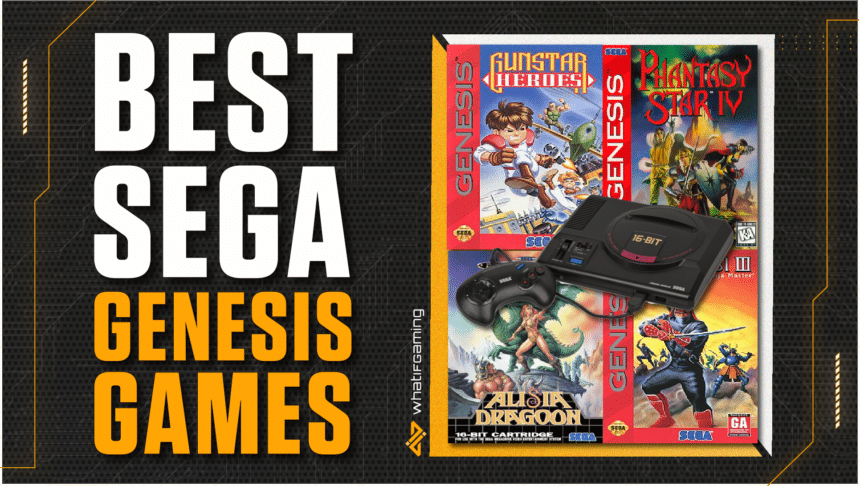



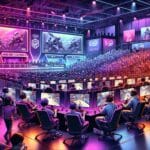
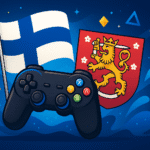

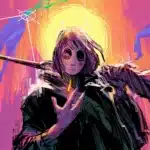

The emulators are ok but the games became so much more difficult
Whoever wrote this list didn’t grow up in the 80s. Desert Strike, beyond oasis, streets of rage 2, flashback, sonic 2, thunder force 4, rocket knight adventures, all better that these. Subjective of course but there we go
I played every game on this list except for Battletoads, and owned 5 or 6 of them as a kid. PSIV is still my favorite game of all time today. A very well chosen list.
If Sega came back as a contender today after updating graphics and power ect. Do you think they could compet in the Video Game world today??